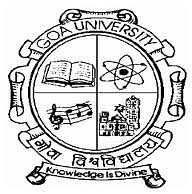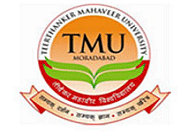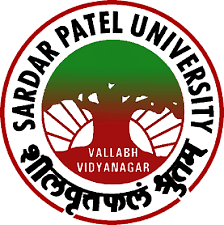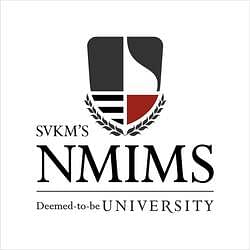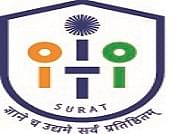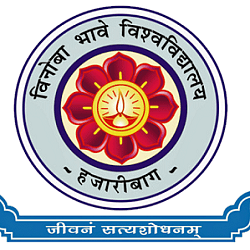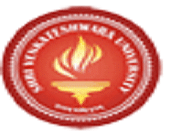Introduction
about Ph. D in Hospital
PhD in Hospital Administration from best college is an advanced academic degree focused on preparing individuals
for leadership roles in the healthcare industry, particularly within hospitals
and healthcare systems. This doctoral program emphasizes research, policy analysis,
and strategic management in healthcare settings. It aims to develop experts who
can contribute to the improvement of healthcare delivery, organizational
efficiency, and patient outcomes through evidence-based practices and
innovative solutions.
Program Overview
A PhD in Hospital
Administration typically covers a wide range of topics essential for effective
healthcare management. These include healthcare policy, organizational
behavior, health economics, quality improvement, and leadership in healthcare.
The program is research-intensive and requires the completion of a dissertation
that contributes original knowledge to the field.
Objectives of the Program
Develop Advanced Leadership Skills: Equip students with the skills necessary to
lead and manage complex healthcare organizations.
Conduct High-Quality Research: Train students to design and execute
research projects that address critical issues in hospital administration.
Enhance Policy Analysis Abilities: Provide students with the tools to analyze
and influence healthcare policies at local, national, and international levels.
Improve Healthcare Delivery: Focus on strategies to enhance the
efficiency, effectiveness, and equity of healthcare services.
Core Areas of Study
Healthcare Management and Leadership:
Study of management
principles, leadership theories, and organizational behavior as they apply to
healthcare settings.
Topics may include strategic
planning, human resource management, and change management.
Health Economics and Finance:
Analysis of economic
principles and financial management in healthcare.
Topics such as cost-benefit
analysis, healthcare financing, and budgeting are covered.
Healthcare Policy and Law:
Examination of healthcare
policies, regulations, and legal issues.
Focus on policy formulation,
implementation, and evaluation.
Quality Improvement and Patient Safety:
Strategies for improving
healthcare quality and ensuring patient safety.
Topics include performance
measurement, process improvement, and safety culture.
Research Methods and Statistics:
Training in qualitative and
quantitative research methods.
Courses on data analysis,
statistical techniques, and research design.
Dissertation
The dissertation is a
critical component of the PhD program, requiring students to conduct original
research on a topic relevant to hospital administration. The process involves:
Proposal Development: Formulating a research question, conducting
a literature review, and designing the study.
Data Collection and Analysis: Gathering and analyzing data to answer the
research question.
Writing and Defense: Documenting the research findings in a
dissertation and defending it before a committee of experts.
Career Prospects
Graduates of a PhD in
Hospital Administration can pursue various career paths, including:
Academic Positions: Teaching and research roles at universities
and colleges.
Executive Leadership: Senior management positions such as hospital
CEOs, COOs, or administrators.
Policy Analysis and Consulting: Roles in government agencies, think tanks,
or consulting firms focusing on healthcare policy and management.
Healthcare Research: Positions in research organizations or
healthcare institutions conducting studies to improve healthcare delivery and
outcomes.
Benefits of a PhD in
Hospital Administration
Expertise: Gain deep knowledge and specialized skills in hospital administration.
Leadership Opportunities: Prepare for high-level leadership and
management roles in the healthcare industry.
Research Contributions: Contribute to the body of knowledge in
healthcare management through original research.
Influence Policy: Play a role in shaping healthcare policies and practices at various
levels.
What is
admission process for Phd in Hospital Administration ?
The admission process for PhD in Hospital Administration is rigorous and involves several steps to ensure
that candidates are well-prepared for the demands of the program. Below is a
detailed overview of the typical admission process:
1. Research and Choose
Programs
Identify Programs:
Research universities and
institutions offering a PhD in Hospital Administration.
Evaluate programs based on
faculty expertise, research opportunities, curriculum, and alignment with your
career goals.
2. Meet Eligibility Criteria
Educational Background:
Master’s Degree: Most programs require a master’s degree in Hospital Administration,
Healthcare Management, Public Health, Business Administration, or a related
field.
Bachelor’s Degree: Some programs may consider candidates with
only a bachelor’s degree if they have significant professional experience in
healthcare administration.
Academic Performance:
A strong academic record is
essential, often requiring a minimum GPA of 3.0 on a 4.0 scale. Competitive
programs may prefer higher GPAs.
3. Prepare Application
Materials
Application Form:
Complete the online
application form available on the university’s website.
Transcripts:
Submit official transcripts
from all post-secondary institutions attended.
Curriculum Vitae (CV):
Provide a detailed CV
highlighting your academic background, professional experience, research
activities, and publications (if any).
Statement of Purpose (SOP):
Write a compelling SOP
outlining your research interests, career goals, and reasons for pursuing a PhD
in Hospital Administration. Explain how your background and experiences have
prepared you for the program and how the program will help you achieve your
objectives.
Research Proposal:
Some programs require a
research proposal that outlines your intended research topic, objectives,
methodology, and significance. This demonstrates your ability to plan and
propose independent research.
Letters of Recommendation:
Obtain 2-3 letters of
recommendation from academic advisors, professors, or professional supervisors
who can attest to your academic abilities, research potential, and professional
experience.
Test Scores:
Submit scores for
standardized tests such as the GRE or GMAT, if required by the program.
Additionally, non-native English speakers may need to provide proof of English
proficiency through TOEFL or IELTS scores.
4. Application Submission
Application Fee:
Pay the application fee,
which varies by institution.
Submit Application:
Ensure all components of
your application are submitted before the deadline. Many universities use
online application portals.
5. Interview Process
Interview:
If shortlisted, you may be
invited for an interview. This can be conducted in person, over the phone, or
via video conferencing.
The interview assesses your
motivation, research interests, and suitability for the program.
6. Admission Decision
Review Process:
The admissions committee
reviews applications, considering academic qualifications, research potential,
professional experience, and alignment with the program’s strengths and faculty
expertise.
Notification:
You will be notified of the
admission decision. Successful candidates will receive an offer letter
outlining the terms of admission, including funding details if applicable.
7. Acceptance and Enrollment
Accept Offer:
If you receive an offer,
confirm your acceptance by the deadline specified in the offer letter.
Enroll:
Complete any additional
administrative steps required for enrollment, such as submitting a deposit,
registering for courses, and attending orientation sessions.
Additional Considerations
Funding:
Explore funding options such
as scholarships, grants, teaching assistantships, or research assistantships.
Many PhD programs offer financial support to cover tuition and living expenses.
Visa and Immigration:
International students will
need to apply for a student visa. Follow the university’s guidelines and
provide the necessary documentation for the visa application.
What is
eligibility process for Ph. D in Hospital Administration ?
The eligibility process for PhD in Hospital Administration involves meeting specific academic,
professional, and sometimes language proficiency criteria set by the admitting
institution. Here are the common eligibility requirements:
1. Educational Background
Master’s Degree:
Most programs require
applicants to hold a master’s degree in Hospital Administration, Healthcare
Management, Public Health Administration, Business Administration, or a closely
related field.
The master’s degree should
be from a recognized institution and typically involves coursework relevant to
healthcare administration or management.
Bachelor’s Degree:
Some programs may consider
exceptional candidates with only a bachelor’s degree if they have extensive
professional experience and a strong academic record.
2. Academic Performance
Grade Point Average (GPA):
A strong academic record is
essential. Most programs require a minimum GPA, often around 3.0 on a 4.0
scale.
Higher GPAs may be
preferred, especially for competitive programs.
3. Professional Experience
Healthcare Experience:
Relevant professional
experience in healthcare administration, management, or related fields is
typically preferred.
Candidates with leadership
or managerial experience in healthcare settings may have an advantage.
4. Research Experience
Research Background:
Previous research
experience, demonstrated through a master’s thesis, research projects,
publications, or presentations, is highly valued.
Applicants should show
evidence of their ability to conduct independent research or contribute to
scholarly work in the field of hospital administration.
5. Standardized Test Scores
GRE or GMAT:
Some programs require scores
from standardized tests such as the Graduate Record Examination (GRE) or the
Graduate Management Admission Test (GMAT).
Specific score requirements
vary by institution and program.
6. Language Proficiency
English Proficiency:
For non-native English
speakers, proof of English proficiency is typically required. This can be
demonstrated through standardized tests such as the Test of English as a
Foreign Language (TOEFL) or the International English Language Testing System
(IELTS).
Minimum score requirements
vary, but generally, a TOEFL score of around 90-100 or an IELTS score of
6.5-7.0 is expected.
7. Application Materials
Statement of Purpose (SOP):
A well-written SOP outlining
your research interests, career goals, and reasons for pursuing a PhD in
Hospital Administration is crucial.
This document should explain
how your background and experiences have prepared you for the program and how
the program will help you achieve your objectives.
Research Proposal:
Some programs require a
detailed research proposal that outlines your intended research topic,
objectives, methodology, and significance. This demonstrates your ability to
plan and propose independent research.
Letters of Recommendation:
Typically, 2-3 letters of
recommendation from academic advisors, professors, or professional supervisors
who can attest to your academic abilities, research potential, and professional
experience are required.
Curriculum Vitae (CV):
A detailed CV highlighting
your academic background, professional experience, research activities,
publications, and any other relevant accomplishments.
Transcripts:
Official transcripts from
all post-secondary institutions attended are required to verify your academic
record.
What is
syllabus for Ph. D in Hospital
The syllabus for PhD in Hospital Administration is designed to provide students with advanced knowledge
and skills in healthcare management, research methodologies, policy analysis,
and leadership. While specific course offerings may vary between institutions,
here is a comprehensive overview of the typical syllabus:
1. Core Courses
Healthcare Management Theory and Practice:
Examination of theories,
models, and principles of healthcare management.
Topics may include strategic
planning, organizational behavior, and leadership in healthcare.
Healthcare Policy Analysis:
Analysis of healthcare
policies, regulations, and legal frameworks.
Study of policy formulation,
implementation, and evaluation processes.
Health Economics and Financial Management:
Application of economic
principles to healthcare systems.
Topics may include
healthcare financing, cost-benefit analysis, and budgeting.
Quality Improvement and Patient Safety:
Strategies for improving
healthcare quality, patient safety, and outcomes.
Focus on quality
measurement, process improvement methodologies, and safety culture.
Research Methods in Healthcare:
Training in quantitative and
qualitative research methods.
Courses may cover study
design, data collection, analysis techniques, and ethical considerations.
Advanced Healthcare Informatics:
Use of information
technology and data analytics in healthcare management.
Topics include electronic
health records, health information exchange, and data-driven decision-making.
2. Specialization Courses
Depending on students'
research interests and career goals, they may choose elective courses or
specializations such as:
Hospital Operations Management:
Study of operational
processes and efficiency in hospital settings.
Topics may include capacity
planning, resource allocation, and supply chain management.
Healthcare Policy and Advocacy:
Examination of healthcare
policy development, advocacy strategies, and stakeholder engagement.
Focus on influencing
healthcare policy at local, national, and international levels.
Healthcare Leadership and Organizational
Behavior:
Advanced study of leadership
theories, team dynamics, and organizational culture.
Application of leadership
principles to healthcare management and administration.
Healthcare Innovation and Entrepreneurship:
Exploration of innovation
and entrepreneurship in healthcare delivery.
Topics may include
healthcare startups, technology adoption, and innovation diffusion.
3. Seminars and Workshops
Doctoral Seminars:
Regular seminars to discuss
current research, emerging trends, and theoretical advancements in hospital
administration.
Guest lectures by industry
experts and academicians.
Research Workshops:
Practical workshops on
research methodologies, data analysis techniques, and academic writing.
Opportunities to present
research proposals and findings for peer feedback.
4. Comprehensive
Examinations
Qualifying Exams:
Exams to assess students'
comprehensive knowledge of healthcare management theories, research
methodologies, and their chosen specialization.
Often taken after the
completion of coursework and before the dissertation phase.
5. Dissertation Research
Dissertation Proposal Development:
Formulation and defence of a
dissertation proposal outlining the research topic, objectives, methodology,
and significance.
Dissertation Research and Writing:
Conducting original research
under the guidance of a faculty advisor.
Writing the dissertation,
which includes literature review, methodology, findings, discussion, and
conclusion.
Dissertation Defence:
Presentation and defence of
the dissertation before a committee of experts.
6. Optional Internships or
Fieldwork
Industry Internship or Fieldwork:
Some programs offer or
require internships or fieldwork to gain practical experience and apply
research in real-world healthcare settings.





